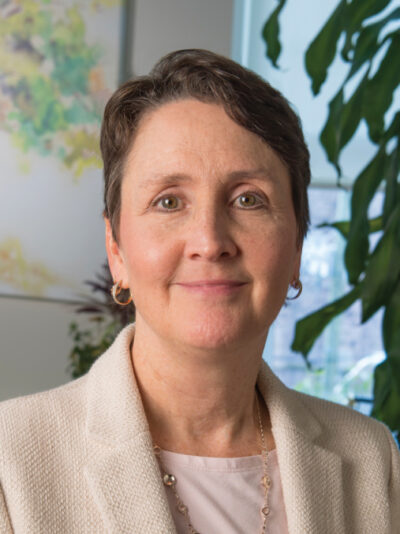A conversation with Michele Norin, Rutgers University Senior Vice President and CIO and Unizin Board Chair.
Michele Norin has traversed the arc of technology evolution within higher education for more than three decades, beginning as a member of the IT team at the University of Arizona and ultimately CIO, and now as Senior Vice President and CIO at Rutgers University. As both a catalyst for and observer of organizational change, Michele is keenly aware of the major shift in how technology is understood, valued, and leveraged across the academy.
“A historic tension has always existed between academic departments and IT,” explains Michele. “For many years, I believe, IT departments didn’t fully appreciate the role they could play to advance and accelerate learning. An academic department or instructor would approach IT with a request to adopt a new system or platform and all too often IT would respond with a list of reasons why that platform or system wouldn’t work. Basically, IT said ‘no’ a lot.”
As institutions move at speed to adopt, expand, and integrate learning tools, platforms, and services, Michele underscores the vast opportunities on the horizon, “If we give ourselves permission to say yes.”
The pandemic made teaching with technology mandatory. With learning platforms, engagement tools, and new ways to deliver instructional material now present across campuses and classrooms, a new dynamic is at play.
“Our campuses are now flush with learning tools and platforms. Instructors want to test and try new solutions. Administrators want to understand the value of technology investment. Researchers want access to learning tool data. And students need help navigating an entirely new dimension of learning,” says Michele. “IT is a knowledge hub, enabler, connector, and most importantly – valued partner.”
For Michele and Unizin alike, the emphasis on partnership and collaboration cannot be understated. IT and academic departments can no longer afford to work in silos. The historic tension has evolved to cooperation, shared objectives, and strategic foresight.
“As CIO, I am partnering with the President and CFO to consider technology at an enterprise level to ensure that we are utilizing our resources wisely and making investments with intention and purpose. At the same time, we don’t want to stifle the unprecedented appetite for experimentation and exploration at the academic level. So we’ve made the conscious decision to say ‘yes’ more often.
“This doesn’t mean we have a blank check. But it does mean that we’re prepared to partner across the institution with deans, cabinet peers, researchers, and faculty to push new thinking, new applications, and new approaches to meet the needs of an increasingly diverse and rapidly changing student population.
“It’s a cultural shift. And it still takes some people by surprise,” explains Michele.
As Board Chair, Michele recognizes that Unizin’s foundational organizing principles are reflective of this dynamic. “Unizin is built on the notion of collaboration, transparency and facilitating discussions across the academy about the value of technology and the intelligence we can bring to teaching and learning through data,” Michele notes. “My focus is to continue that level of collaboration and continue to position Unizin for the future.”
“The venn diagram between IT, academics and administration is getting tighter,” she says. “Our goals are more aligned and co-dependent than ever before. That dynamic puts us on the path to take big leaps, rather than incremental baby-steps.”
From her vantage point, Michele sees Unizin as well positioned to inform conversations about strategic investments in technology, the application of AI and other emerging technologies that may impact learning dynamics, and the shifting economics of content, learning tools, and platforms.
At the same time, Unizin members are applying data at the point of learning to foster new approaches to academic advising, deploy student-centric tools and applications, and better evaluate and understand the components of student success.
“What’s exciting about higher education is that we get to be part of this large mission to impact the lives of students,” Michele says. “Information and technology are more important and more valued than ever. What we create and enable has the potential to reshape education, redefine research, and guide decisions that will have profound consequences. It’s a huge responsibility and an even larger opportunity. If we give ourselves permission to say YES.”

